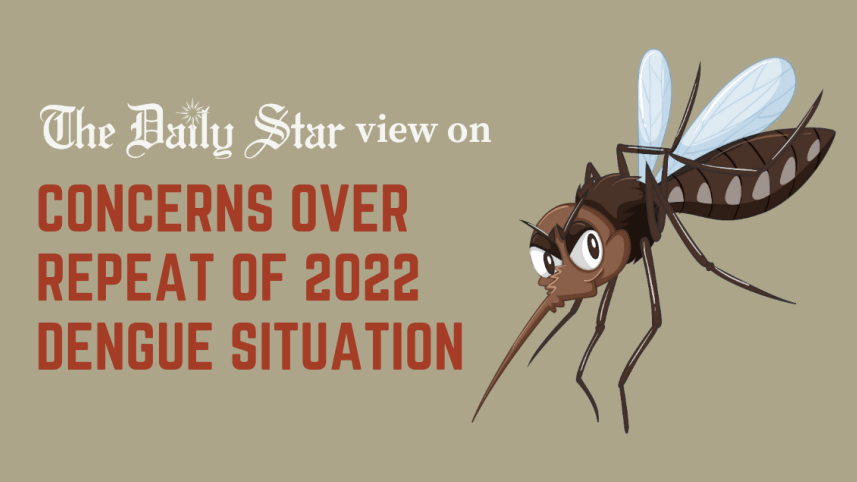Don’t let dengue ravage us again

Despite all warnings about dengue, 2022 saw the highest annual death toll – at least 281 – and the second-highest cases ever recorded in Bangladesh (with 62,382 hospitalisations). Of the patients, at least 27 died and 5,024 were hospitalised in December alone. Such high numbers had never been recorded since the first dengue outbreak in 2000. What's worse, this is happening at a time when, according to the World Health Organization (WHO), the total number of dengue cases has been decreasing globally.
Therefore, the only logical explanation for why Bangladesh suffered so greatly is our woeful lack of preparation. And it's completely unacceptable, more so given that dengue is a preventable disease, and its trajectory is, and has been, totally predictable.
In Bangladesh, dengue cases usually start to surge around June-July every year, and we have decades of experience in dealing with such surges now. Yet, the fact that Bangladesh experienced huge numbers of casualties last year illustrate that the health authorities, as well as the city corporations, have failed to take timely actions. This is something that experts have been warning about for long. Despite our history of dealing with dengue, why is that when the season comes around, we see the authorities moving from pillar to post to handle it? The authorities only start to take action once people start losing their lives, or huge numbers of them begin to get hospitalised. What is the reason for such late responses?
The number of lives being lost as a result of this is extremely worrying. A large portion of those who died could have been saved if timely action was taken. Therefore, the high number of deaths from dengue is a social and institutional failure on our part. Throughout the world, dengue has decreased because of preventive actions. Every society, when they are attacked by such viruses, becomes equipped to handle them within years. Why haven't we?
According to experts, the changing nature of urbanisation – increased construction of high-rise buildings, for example – is one of the biggest reasons for the high number of dengue cases in Bangladesh. The near-ubiquitous presence of stagnant water in the open, and in the basements of under-construction buildings, provides the perfect breeding ground for Aedes mosquitoes. Moreover, infrastructure projects are underway round the year, with mosquitoes taking refuge at these sites to breed. Experts have often identified the prime locations where mosquitoes breed the most; despite that, the authorities cannot conduct early drives to destroy them.
It is time for the authorities to take responsibility for the dengue-related deaths. With another year starting, we urge them to not repeat the same mistake. We urge them to take appropriate measures, including addressing harmful social and institutional practices, before the dengue season starts. Should the same tragic drama unfold again this year, the government must hold the city authorities and other concerned bodies directly responsible, and take stern action against them.



 For all latest news, follow The Daily Star's Google News channel.
For all latest news, follow The Daily Star's Google News channel. 

Comments